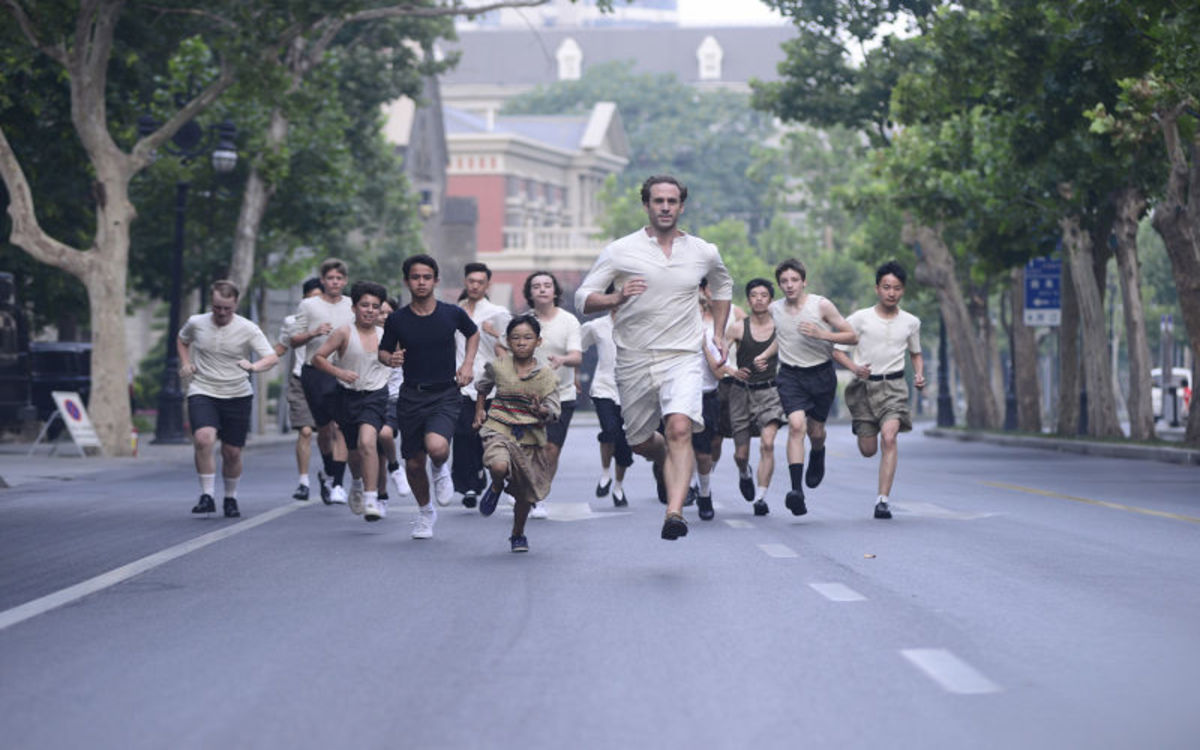- Set for June release, directors hope star Joseph Fiennes will appeal in and out of China
- Story of 1924 Olympic gold winner Eric Liddell interned by Japanese forces in China
- Director says a loosening in China’s censorship made story of Christian missionary passable

Joseph Fiennes in ‘The Last Race’ (Courtesy Image of Stephen Shin)
In 1981, the British film Chariots of Fire won the Oscars for Best Picture and Best Screenplay for bringing to life the story of two runners at the 1924 Olympics whose athleticism was second only to their religious and political devotion—one of whom, Eric Liddell, was the son of Scottish missionaries to China.
Thirty-five years later and nearly a decade since China hosted its own Olympics, Alibaba Pictures will distribute a film in June starring actor Joseph Fiennes as Liddell after he won gold in Paris and returned to Tianjin to carry on spreading the word of God, only to be interned in a labor camp by occupying Japanese forces.
The release of The Last Race in English or 终极胜利 (Zhōngjí Shènglì, roughly The Final Victory) will bring to a close 10-year journey for co-director Stephen Shin, a Christian, who was long fascinated by the story of the second act of the runner Liddell, who, because he was born and died in China, is considered by some as the nation’s first Olympic medalist.
After Liddell refused to run the 100 meter race he was favored to win in Paris because his heat fell on Sunday, the Christian holy day, he won the gold medal in the 400 meters on another day then returned to his missionary work in China. Liddell eventually became a father figure to fellow prisoners in the internment camp in Shandong province where he died in 1945.
Shin, whose own production company made the film for RMB 80 million ($12.3 million), said that Liddell’s Christianity had made making the film difficult, but that a relaxation in censorship had finally seen it pass.
“Christianity is very sensitive in China,” Shin told China Film Insider on the sidelines of the Beijing International Film Festival. “Everyone knows that it is not easy to bring that message here. But now, luckily, the censorship is quite reasonable. We are not pushing other people to accept Christianity or promoting any religious message.”
China is home to tens of millions of Christians—some of whom are part of state-approved churches, while others risk incurring the wrath of the ruling party by attending underground churches. In February, a government campaign to remove Christian crosses from the roofs of churches in Zhejiang province ended in the imprisonment of a defiant pastor at a state-approved church for 14 years. In January, pastor Gu Yuese, who heads up the country’s largest state-approved church, was arrested before being released in early April.
Shin said he first heard of Liddell’s story when he was working in Shanghai in 2008 on business related to the 2008 Beijing Olympics, by which time The Last Race script had been written and revised for almost eight years.
”Luckily, two years ago, it got through censorship and we see ‘Okay, it’s good.’ It’s okay to make this movie [starting] last year,” Shin said. ”We want people to come to China to make movies. It is not so strict as we might think. If you can handle the topic in the right position, it should be okay.”
In an interview with The Daily Mail, actor Fiennes said that “one or two sacrifices” were made to get the film funded but nothing that was cut left “a gaping hole.”
In working on The Last Race Shin also put together a scrapbook and made a documentary about the history of the Weihsien Internment Camp where Liddell was imprisoned and perished after his pregnant wife and their children left for Canada. Shin reconstructed the camp in Shandong and filmed others scenes in Britain, the United States and Canada.
The film, co-directed by Canadian Michael Parker, has Fiennes in the lead as an easily recognizable character the directors hope will have appeal in both the Chinese and global markets. Shin said the box office was not his focus—a good story was.
“I’m thinking, what is the tragedy of human beings? We can not avoid war. But since it happened, we just don’t want to keep every memory of the war, we have to forget something, we have to give love, we have to make friends.”





